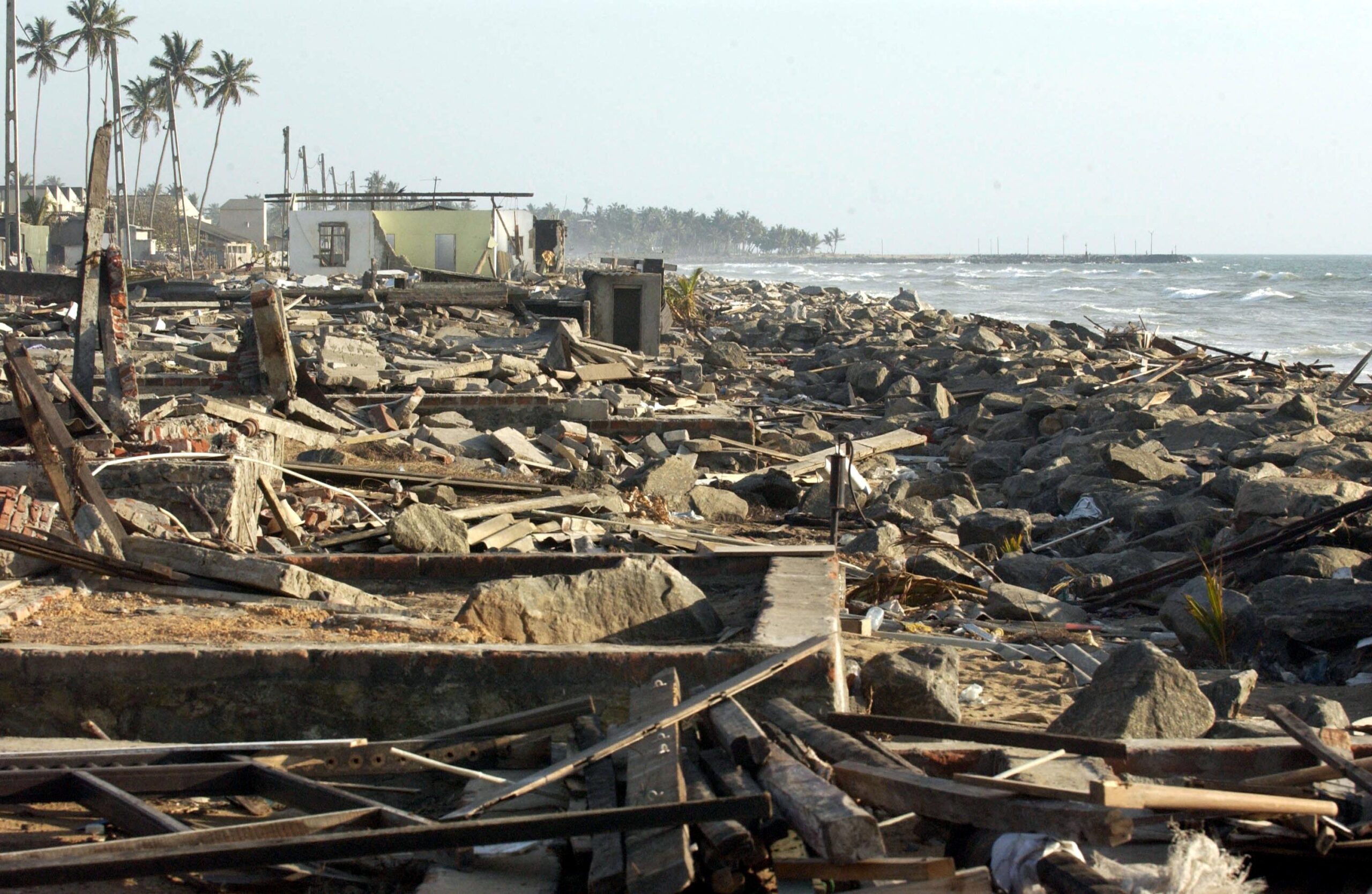Vulnerable small island states adopt 10-year development plan

This January 14, 2005, United Nations handout photo shows destruction caused by the Tsunami of December 26, 2004, in Moratuwa, Sri Lanka. The tsunami disaster that left some 160,000 dead in Asia has made the world more sympathetic to the plight of small islands threatened by climate change, natural hazards, and other problems. AFP PHOTO/EVAN SCHNEIDER/UN (Photo by EVAN SCHNEIDER / UNITED NATIONS / AFP)
UNITED NATIONS, United States — Small developing island states (SIDS), which are among the first victims of climate change, on Thursday adopted a 10-year plan seeking international support in fending off severe and even existential threats.
“It is the beginning of a 10-year sprint. And I hope that there’ll be no brakes that will be put on the SIDS,” UN Deputy Secretary-General Amina Mohammed said, highlighting the “global injustice” they face.
Speaking at the end of the fourth UN Conference on these states, Antigua and Barbuda Prime Minister Gaston Browne, whose capital hosted the forum, said the plan will be used to “agitate and to advocate on behalf of SIDS” among various global bodies.
“We are celebrating a new beginning for a brighter future for SIDS,” he said.
READ: Vatican urges debt cancellation for small island states
Article continues after this advertisementThe group of 39 countries – hailing from the Caribbean and the Pacific and Indian oceans – are home to 65 million people.
Article continues after this advertisementThey share characteristics that make them vulnerable, including small territories, scattered populations, geographic isolation, and poorly diversified, import-dependent economies.
“The next 10 years are critical for small island developing States,” says the declaration.
Global warming is sharpening the threat, bringing droughts, floods, and hurricanes. Rising sea levels can literally erase some of the states from the map, such as the Maldives and Tuvalu.
For the states to achieve “sustainable development and resilient prosperity,” they must “diversify their economies and strengthen State and productive capacities,” the document adopted Thursday said.
They are investing in advanced technology and the digital economy, developing renewable energy and boosting trade.
READ: Island states seek climate protection from Law of the Sea
Tourism will remain a focus, with the sector representing 20 percent of GDP for almost two-thirds of these states, and up to 65 percent of the economy of the Maldives, according to the International Monetary Fund.
The countries will promote “resilient and sustainable tourism” including by minimizing pollution and protecting biodiversity, especially fragile coral reefs that attract divers from all over the world.
But in a global environment posing economic, climate, and geopolitical threats, “without the full support of the international community, small island developing States will endure potentially far-reaching consequences,” the document states.
Many of these island states, some of them saddled with debt, are classified as middle-income countries and therefore ineligible to receive international aid and financing at preferential rates from development banks.
They are urging reforms of the international financial system, with several envoys in Antigua calling for factors like economic dependence and exposure to climate change to be taken into consideration, and not just GDP.